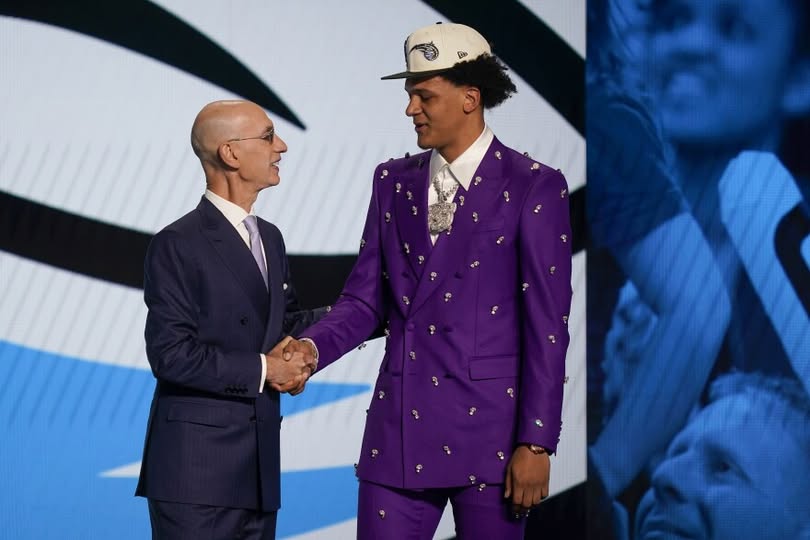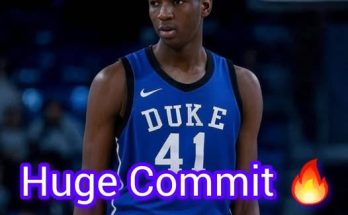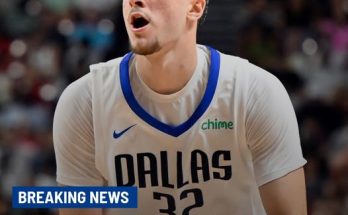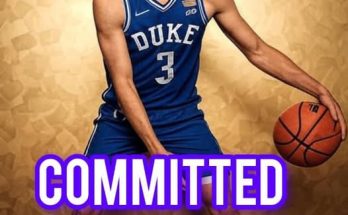The Duke Blue Devils have long stood as a cornerstone of college basketball excellence. Under Coach Mike Krzyzewski for over four decades and now guided by Jon Scheyer, Duke has not only dominated on the hardwood in the NCAA but also built one of the most formidable pipelines to the NBA in modern basketball history. The combination of a good development program, elite-level recruiting, and consistent competitiveness has enabled Duke to produce top-tier NBA talent, year after year. In 2025, that legacy only looks more secure, with an exciting mix of one-and-done superstars, four-year leaders, and an unparalleled culture that primes players for professional success.
A Legacy Built on Development and Winning
Duke’s NBA Draft dominance is not accidental. The foundation was laid with a focus on holistic player development. From the legendary 1990s trio of Grant Hill, Christian Laettner, and Bobby Hurley to recent standouts like Zion Williamson, Brandon Ingram, and Paolo Banchero, Duke has consistently balanced athletic growth with mental and emotional maturity.
Unlike programs that rely solely on raw talent, Duke’s culture instills discipline, accountability, and basketball IQ—qualities that translate well to the NBA. The program emphasizes team defense, advanced offensive spacing, pick-and-roll decision-making, and situational awareness. Every player learns to understand roles and maximize efficiency, preparing them for the professional level.
Jon Scheyer, a national champion as a player and a rising star in the coaching world, has seamlessly continued this tradition. Since taking over from Coach K, Scheyer has built on the Duke DNA while adjusting to the modern game. His blend of player empowerment and accountability fosters early development for freshmen while allowing upperclassmen to grow into leadership roles.
The 2025 NBA Draft Class: Duke’s Latest Contribution
The 2025 NBA Draft class further cements Duke’s position as a top producer of NBA-ready talent. Headlining the group is Cooper Flagg, the consensus No. 1 player in the country and a projected No. 1 overall pick. Flagg, a 6’9” forward with elite athleticism, two-way versatility, and a relentless motor, is widely seen as the next transformative NBA talent.
Flagg’s presence on Duke’s roster has already created buzz throughout the NBA scouting community. His performances in the McDonald’s All-American Game, Nike Hoop Summit, and Duke’s preseason tours have left no doubt—he’s a generational prospect. His defensive instincts, three-level scoring, and advanced feel for the game put him ahead of most freshmen, making him a likely top-three pick in 2025.
But Flagg isn’t alone.
Joining him in the 2025 Draft conversation is fellow five-star recruit Isaiah Evans, a 6’7” wing with a silky jump shot and smooth handle. Evans’ upside as a shot creator and transition weapon has him on the radar of lottery teams. He may not have Flagg’s defensive prowess, but his offensive package is tantalizing.
There’s also Caleb Foster, a sophomore guard who projects as a second-round or late first-round pick. Foster offers floor-spacing, solid decision-making, and a veteran’s poise in the backcourt. His ability to play both guard positions, coupled with improved physicality and defense, makes him a valuable NBA role player in the making.
Lastly, don’t overlook Tyrese Proctor, who returned for another season to refine his game. Proctor is a combo guard with NBA size and shooting touch, and his improved consistency has made scouts take notice again. His decision to come back for a third season at Duke—once uncommon for NBA-caliber talent—demonstrates the faith players have in the development system in Durham.
Building NBA-Ready Players Through Culture
So, what makes Duke different?
It starts with the culture. The coaching staff doesn’t treat freshmen as temporary guests—they are part of the legacy. Every player, whether one-and-done or four-year senior, is expected to embody the Duke standard. That includes leadership in the locker room, effort on defense, composure in hostile arenas, and maturity in decision-making.
The program operates like a professional franchise. Players get exposure to NBA-style workouts, film sessions, and performance analytics. Strength and conditioning programs are tailored to simulate the physical demands of the NBA. Nutrition, sleep optimization, mental health resources—Duke leaves no stone unturned in helping their athletes succeed.
Moreover, the staff brings NBA experience into the fold. Former NBA players, agents, scouts, and development coaches routinely visit practices and offer feedback. This creates a bridge for players between college and the pros, giving them insight into what it takes to stay in the league—not just get there.
Duke’s Recent Track Record Speaks for Itself
Since the one-and-done era took full form in the late 2000s, Duke has been a factory for NBA talent. Consider these recent draft success stories:
- Paolo Banchero – No. 1 overall pick in 2022 by the Orlando Magic. He won NBA Rookie of the Year and quickly established himself as a cornerstone for Orlando’s future.
- Zion Williamson – 2019’s No. 1 overall pick. Though injuries have limited his playing time, his impact when healthy is undeniable.
- Brandon Ingram – No. 2 overall in 2016, now a consistent All-Star-caliber scorer for the New Orleans Pelicans.
- RJ Barrett – Drafted No. 3 overall in 2019, he continues to evolve with the Toronto Raptors after a stint with the Knicks.
- Mark Williams – A 2022 first-round pick, Williams is emerging as a defensive anchor for the Charlotte Hornets.
And it doesn’t stop there. Duke alumni like Grayson Allen, Tre Jones, Cam Reddish, and Wendell Moore Jr. are all contributing in different roles across the league. That level of output—both in volume and quality—is unmatched.
The “Brotherhood” Advantage
Duke’s NBA pipeline also benefits from what’s known as “The Brotherhood.” It’s more than just a slogan—it’s a tight-knit fraternity of former Duke players who support one another across college, NBA, and life ventures. From private pickup games in the summer to mentorship dinners and off-season workouts, Duke players stay connected.
This support system offers incoming freshmen a unique advantage: access to wisdom and experience from those already in the NBA. Whether it’s Jayson Tatum offering shooting advice, Kyrie Irving talking about handling media pressure, or Quinn Cook helping with financial literacy, the guidance is real and impactful.
NBA teams take notice. Scouts and GMs trust Duke players to come in with strong character, high basketball IQ, and a willingness to buy into a role. That’s why Duke continues to produce both stars and solid contributors.
NIL and the Evolution of Player Development
Another key factor bolstering Duke’s NBA readiness is its savvy use of Name, Image, and Likeness (NIL) opportunities. Instead of chasing quick paydays via G-League Ignite or overseas contracts, top recruits are now staying in school with the assurance of seven-figure NIL deals.
At Duke, players benefit from national exposure on ESPN, massive social media followings, and endorsement deals through blue-chip sponsors like Nike, Gatorade, and local partnerships. NIL revenue allows athletes like Cooper Flagg to develop their games in a supportive environment while securing financial stability. It removes the urgency to bolt prematurely, allowing for smarter NBA draft decisions.
The administration and boosters at Duke have created a robust NIL infrastructure that complements their already elite basketball culture. This means players stay longer, get better, and enter the NBA more prepared.
2025 and Beyond: Sustaining the NBA Pipeline
Looking ahead, the future only gets brighter for Duke. The 2026 recruiting class already features commitments from top-15 prospects, and there are whispers that Duke may land another No. 1 overall prospect next year. Jon Scheyer’s recruiting prowess, combined with his calm demeanor and player-first mentality, has kept Duke at the top of everyone’s radar.
More importantly, the program isn’t just attracting athleticism—it’s bringing in high-character players who want to grow. That’s the secret sauce of the NBA pipeline. You can’t just draft talent; you must draft professionals. Duke understands that better than most.
With the college landscape shifting and more schools embracing NIL, overseas leagues improving, and the NBA’s collective bargaining agreement evolving, Duke has remained a stable force in a turbulent world. Their development program is second to none, and their ability to turn high school prospects into NBA standouts is unrivaled.



